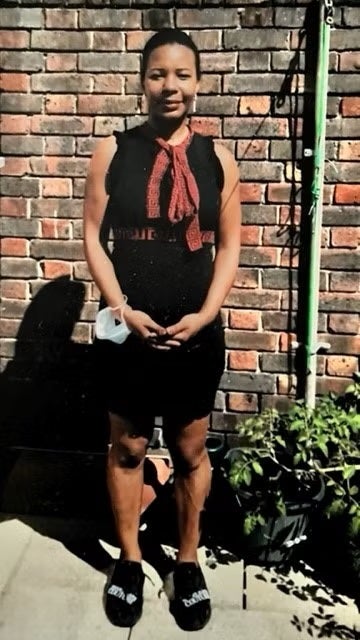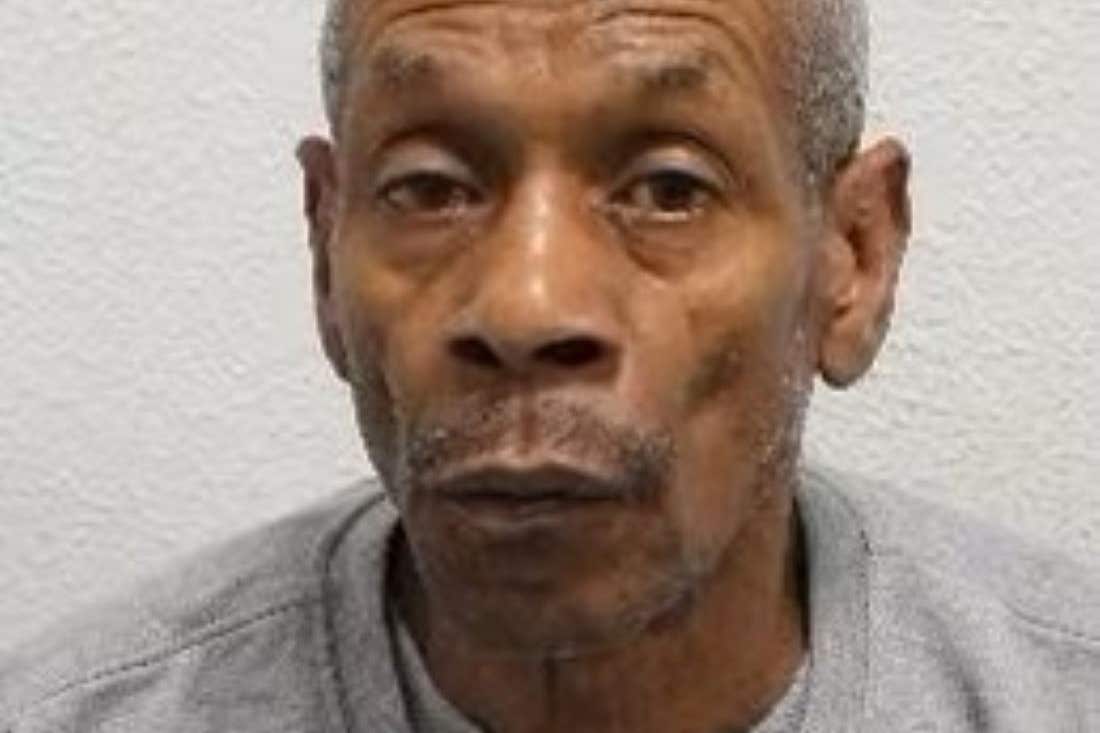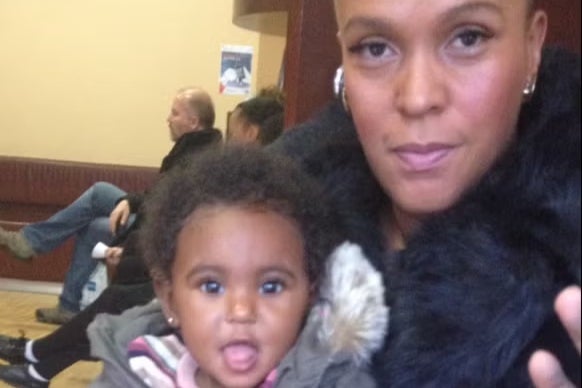Support trulyindependent journalism
Find out moreClose
Our mission is to deliver unbiased, fact-based reporting that holds power to account and exposes the truth.
Whether $5 or $50, every contribution counts.
Support us to deliver journalism without an agenda.
A grieving family have revealed police missed a string of chances to stop an “evil and controlling” ex-boyfriend who murdered two women in just 16 months.
Handyman Carl Cooper, 66, was branded a danger to women when he was jailed for 35 years for murdering former partners Naomi Hunte, 41, and Fiona Holm, 48, whose body has never been found. Both women had reported Cooper to the police for domestic abuse before they were killed.
In their first interview about the case, Fiona’s heartbroken family hit out at the Met for not stopping the abusive killer sooner and failing to alert the mother of four about his violent past.
Under the “right to know” section of Clare’s Law – also known as the Domestic Violence Disclosure Scheme – officers are allowed to disclose information about an abuser’s history if they fear for a new partner’s safety. But in a report this month, police inspectors found the Met is failing to make proper use of the law and is only making 3.3 disclosures per 100,000 people under the right to know scheme – far below the national average of 17.5.
The domestic abuse charity Refuge slammed the “woefully low” figures, adding: “This is consistent with what we hear from many domestic abuse survivors, as well as in Domestic Homicide Reviews, and begs the question, why aren’t women being supported when they report their abusers and disclose concerns, especially if their perpetrator is already known to the police?
“We need to see police forces acting earlier, listening to women’s voices and taking their concerns seriously, enacting vital safety planning to protect them. The focus needs to be on prevention, not issuing apologies when it’s too late.”

In a series of damning developments in the Cooper double murder case, The Independent can reveal:
During a four-week trial at Woolwich Crown Court, it emerged that Ms Hunte had repeatedly told officers she was frightened of Cooper, who had been stalking her, during four separate calls alleging abuse between November 2020 and October 2021.
She was found stabbed to death on her blood-soaked sofa on Valentine’s Day in 2022. Cooper was arrested on suspicion of her murder by police who later found her blood on his coat. But – for reasons grieving relatives still struggle to fathom – he was released under investigation and left free to start a new relationship with unsuspecting mother of four Ms Holm.
When she also reported him to the police for threatening her with a crowbar and stabbing her with a screwdriver in April 2023, she had no idea the man she was dating was a murder suspect.
Cooper was handed a 28-day Domestic Harm Prevention Order but Ms Holm vanished without trace after it expired the following month, leaving her children, aged 27, 22, 17 and six, without their mother.

Police later discovered traces of her blood in multiple locations, including the walls, door and wifi router of Cooper’s flat, which he had redecorated to cover his tracks, but her body has never been found.
Ms Holm’s devastated family said the vulnerable mother, who had autism and ADHD, changed after she started seeing Cooper on New Year’s Eve in 2022.
They warned her to stop seeing him after she came home with puncture wounds from a screwdriver, and thought she was staying with a friend when she went missing on 20 June last year.
At the beginning of weeks of frantic searches, the family visited Cooper’s flat in Catford, southeast London, to look for her but found the windows had been painted over. They began scratching some of it away only to find Cooper staring back at them from inside.
“It was like something out of a horror film,” her daughter Savannah recalled.
Cooper, who insisted he had not seen Ms Holm, was not arrested until several weeks later when the family returned on 11 July to find him selling her clothes to a market trader and called the police.
“I smelled my sister on the coats,” Elise said. “I knew something was wrong.”

It was only then that they learned he was also implicated in the murder of Ms Hunte.
Elise said they were “disgusted” with the officers who did not warn Ms Holm that Cooper was being investigated for killing Ms Hunte.
“They should have told her,” she said. “There just has to be something to warn a woman, with domestic crimes especially.”
A total of 242 domestic abuse-related deaths were recorded between April 2022 and March 2023, including 80 intimate partner homicides. Four in five suspects were already known to police, according to figures from the National Domestic Homicide Project. Separate figures from the Femicide Census show six in 10 men who killed women in 2021 had known histories of violence against women or were subject to monitoring or restrictions by a statutory agency.
The family have also accused the Met of bungling their investigation into Ms Holm’s disappearance after discovering that police had received an anonymous 999 call reporting Cooper for murdering a woman in Catford on 25 June. This was wrongly categorised as a hoax call and not followed up.

In the days that followed, Cooper cleared out his flat, stripped the wallpaper and was seen lighting a series of fires as he disposed of her body and other vital evidence.
“If the police would have gone round there on that day – they might have found evidence,” Savannah said. “The police officers said themselves if they would have gone round that day they would have treated this case differently.
“All these things have been too late. He had two, maybe three weeks to get rid of everything.”
She fears her mother’s remains may have been hidden in a sectional sofa Cooper had collected. It was taken to a dump in Bermondsey, south London, but by the time police tried to trace it, the sofa had been shipped to Sweden where it was destroyed.
“It’s just a theory but we don’t know,” added Savannah, who has applied to visit her mother’s killer in prison to appeal for him to give up the location of her body. “How are we supposed to move on? We will always be waiting for this phone call.”

The family described Cooper, who moved to London from Jamaica aged 40, as “remorseless” and “pure evil” in court.
Afterwards, they were contacted by another family whose mother was allegedly stabbed by Cooper.
Court records confirmed he was tried for the attempted murder of another woman at London’s Old Bailey in 1999, but acquitted.
Domestic violence campaigners have said the deaths of both Ms Hunte and Ms Holm were preventable, as they hit out at systemic failings in the police response to abuse.
Ikram Dahman, of Refuge, said: “We reiterate the words of Fiona’s family in recognising the multiple failures that led to both her murder and the previous murder of Naomi: both women’s deaths were preventable.
“Naomi and Fiona each reported domestic abuse to the police before they were killed. The Met has serious questions to answer about why these reports weren’t taken seriously and acted on with haste, which could have saved their lives.”
Rebecca Hitchen, of the End Violence Against Women Coalition (EVAW), said: “These awful murders are a harrowing reminder of the serious consequences of systemic failings in how the police treat victims of abuse.
“We expect to see urgent, meaningful action to transform policing – women’s lives lie in the balance.”

Four officers are being investigated by the Met’s professional standards department for misconduct over their handling of Ms Holm’s complaint about Cooper.
An Independent Office for Police Conduct (IOPC) spokesperson said they had received a mandatory referral after Cooper was arrested for Ms Holm’s murder, but decided it should be investigated by the force’s directorate of professional standards.
The Met Police said there was insufficient evidence to charge Cooper with the murder of Ms Hunte in 2022. However, a critical incident review has concluded a more thorough initial investigation could have identified key witnesses to help support a prosecution of Cooper for assaulting Ms Holm in April, before she was killed.
A Home Office spokesperson said: “The level of violence against women and girls in our country is intolerable and this government recognises it as a national emergency.
“Through our unprecedented mission to halve such violence within the next decade, we will overhaul every aspect of society’s response to these appalling crimes. This begins with improving policing and the criminal justice system, relentlessly pursuing dangerous offenders and providing sustained support for victims.”




















